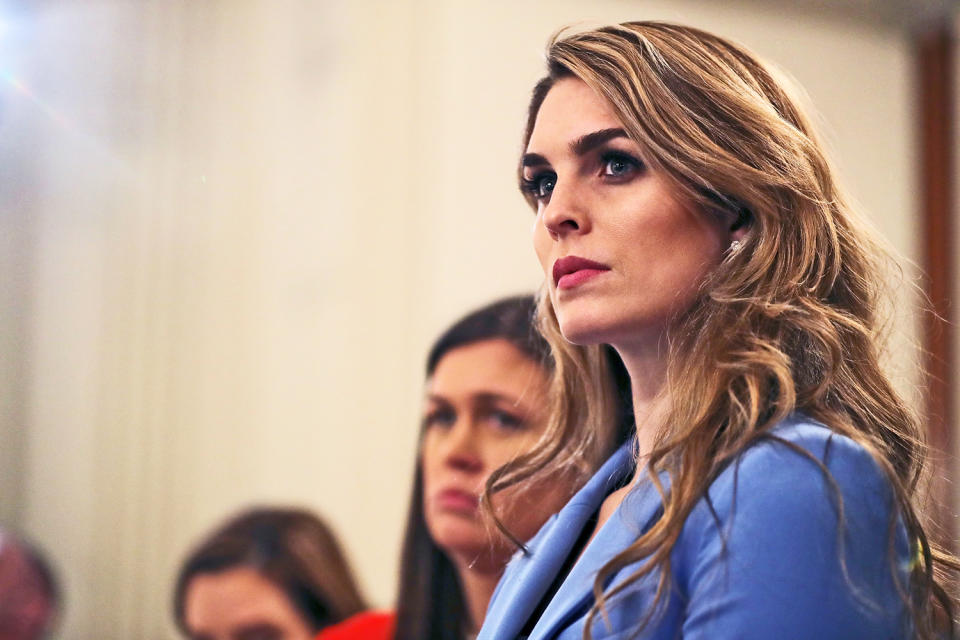Hope Hicks admitted to telling 'white lies.' Are they ever OK?
Hope Hicks, the White House communications director, gave a private nine-hour testimony before the House Intelligence Committee on Tuesday during which she reportedly admitted that she sometimes tells “white lies” for the president as part of her job.
Hicks insisted that she has not lied on President Trump’s behalf about anything important, the New York Times reports.

The panel Hicks testified before is investigating Russian interference in the 2016 presidential election, as well as any contact the Trump campaign may have had with Russia. After the testimony, Republican committee member Tom Rooney told reporters, according to the Independent, that Hicks made it clear that while she told white lies on occasion, she did not lie about things of major significance. “When specifically asked whether or not she was instructed to lie by the president, or the candidate, with regard to Russia, the investigation or our investigation, the answer to that question was no,” Rooney said. “And that’s our jurisdiction. Not whether or not he asked her to cancel a meeting for him or something like that.”
However, people on social media still seem pretty upset about the “white lies” comment:
Hicks says her job entails telling “white lies” for the president. What??? https://t.co/e5jIiO4iZu
— Joy Reid (@JoyAnnReid) February 28, 2018
What if one of Hope Hicks’ little white lies is that she only tells little white lies? #inceptionbutton pic.twitter.com/WSJPrx15QC
— Sam Stein (@samstein) February 28, 2018
When the communications director — of all people — admits she tells "white lies," the follow-up Q to every WH statement/declaration should be:
"Is that a "white lie"? https://t.co/Lft3nAQEjU
— Mark Murray (@mmurraypolitics) February 28, 2018
White lies, which are lies that are generally thought to be harmless or trivial, are pretty common, Josh Klapow, PhD, a clinical psychologist with the University of Alabama at Birmingham School of Public Health, tells Yahoo Lifestyle. These fibs generally include comments like “I’ll be there in five minutes,” “I love the gift,” and “I’m fine.”
White lies generally fall into the category of “altruistic lying,” meaning that you avoid telling the truth to try to protect someone or not hurt their feelings, Klapow says. “They’re usually done to avoid conflict,” he adds. However, white lies aren’t altruistic all the time.
“In general, white lies are not that big of a deal, but context means a lot,” Klapow says. For example, if you’re in a position of power and you tell a white lie, it can actually have much bigger ramifications than saying you’re “doing great” when you’re actually having a bad day. “At higher levels of power, it can affect more people,” Klapow says, which is why he cautions against doing this in the workplace if you have a senior position.
White lies can also lead to a string of lies if you’re not careful, Klapow says. That’s why he stresses trying to think about what you say before you actually tell a white lie. Otherwise, you could end up eating the same crummy meal every week, instead of just once, had you been honest about how it really tasted.
Bottom line: In general, white lies are pretty harmless, but context is everything. Now if only we had the context for the white lies Hope Hicks told.
Read more from Yahoo Lifestyle:
Follow us on Instagram, Facebook, and Twitter for nonstop inspiration delivered fresh to your feed, every day.
